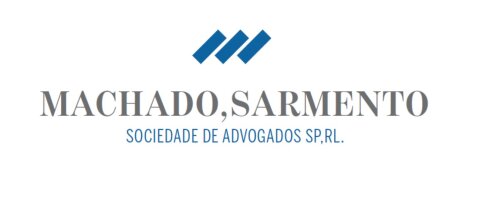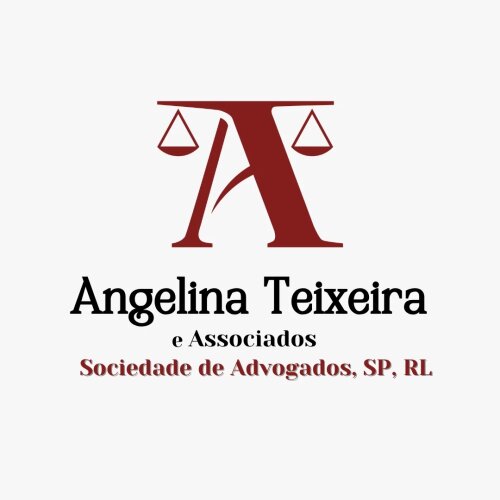Best Sustainable Finance Lawyers in Porto
Share your needs with us, get contacted by law firms.
Free. Takes 2 min.
List of the best lawyers in Porto, Portugal
About Sustainable Finance Law in Porto, Portugal
Sustainable finance refers to financial practices that take into account environmental, social, and governance (ESG) criteria to promote responsible investment and support sustainable economic growth. In Porto, Portugal, sustainable finance has gained substantial interest due to the country’s commitments to the European Union Green Deal and other global sustainability goals. The legal framework is evolving rapidly, influencing the way businesses, investors, and public institutions approach financing decisions, reporting obligations, and sustainable development strategies.
Why You May Need a Lawyer
Individuals and organizations in Porto may encounter complex legal matters related to sustainable finance. Some common situations where legal assistance may be required include:
- Structuring green bonds, social bonds, or other sustainable finance instruments
- Interpreting evolving ESG regulations and taxonomies
- Ensuring compliance with mandatory sustainability reporting requirements
- Navigating due diligence in sustainable investments and acquisitions
- Resolving disputes concerning misrepresentation of ESG claims (greenwashing)
- Understanding incentives and subsidies for sustainable projects
- Collaborating with public authorities on sustainable development initiatives
- Drafting or reviewing contracts with ESG clauses
- Ensuring accurate disclosures to stakeholders, investors, and regulatory authorities
- Managing cross-border implications of sustainable finance regulations
Local Laws Overview
Sustainable finance in Porto is primarily shaped by Portuguese law and various European Union directives and regulations, including the EU Taxonomy Regulation and the Sustainable Finance Disclosure Regulation (SFDR). Key aspects include:
- EU Taxonomy Regulation: Establishes criteria for determining whether an economic activity qualifies as environmentally sustainable.
- Sustainable Finance Disclosure Regulation (SFDR): Requires financial market participants to provide transparency on ESG-related risks and impacts in their investment decisions.
- Non-Financial Reporting Directive (NFRD): Mandates large public-interest entities to disclose non-financial information about sustainability actions and outcomes.
- Green Bonds and Incentives: Portugal offers regulatory guidance and incentives for issuing green bonds to finance eco-friendly projects.
- Environmental Licensing: Certain sustainable investment projects may require environmental licensing overseen by local authorities in Porto.
- Public Procurement: Local and national rules encourage the integration of green criteria in public procurement processes.
Additionally, Porto’s local government often sets its own sustainable development goals, which may affect companies and investors operating within the city.
Frequently Asked Questions
What is sustainable finance?
Sustainable finance refers to financial activities that integrate environmental, social, and governance (ESG) considerations into investment and business decisions to support sustainable economic growth.
Why is sustainable finance regulated in Porto, Portugal?
Regulation ensures that financial activities align with environmental protection, social responsibility, and good governance, helping Portugal meet EU sustainability targets and prevent issues like greenwashing.
What types of financial instruments are considered sustainable?
Examples include green bonds, social bonds, sustainability-linked loans, ESG investment funds, and other instruments designed to finance projects with positive environmental or social outcomes.
Are there legal requirements for companies to report on ESG activities?
Yes, under EU and Portuguese law, many companies must disclose ESG risks and sustainability initiatives, particularly those classed as large public-interest entities.
How can a lawyer help with sustainable finance projects?
A lawyer can interpret and apply relevant laws, draft contracts with ESG clauses, ensure compliance with reporting requirements, advise on green bond issuance, and manage risks related to sustainable investments.
What is greenwashing and why is it a legal concern?
Greenwashing occurs when organizations misrepresent the environmental benefits of their products, services, or investments. This can lead to legal disputes, regulatory penalties, and reputational damage.
Are there incentives for sustainable finance projects in Porto?
Yes, Portugal offers various incentives, subsidies, and tax benefits for qualifying sustainable projects, especially those that align with government sustainability objectives.
What are the environmental licensing requirements for green projects?
Certain investments, such as renewable energy installations or infrastructure upgrades, require environmental licensing overseen by regional authorities, including municipal agencies in Porto.
Is sustainable finance only relevant to large corporations?
No, sustainable finance affects companies of all sizes, as well as investors, public bodies, and nonprofits involved in projects with sustainability impact.
What are the penalties for non-compliance with sustainable finance regulations?
Penalties may include fines, disqualification from certain investments or subsidies, reputational harm, and even civil or criminal liability in cases of fraud or misrepresentation.
Additional Resources
If you are seeking more information on sustainable finance in Porto, the following resources can be valuable:
- Portuguese Securities Market Commission (CMVM): The regulator overseeing financial markets, including sustainable finance disclosures.
- Instituto de Apoio às Pequenas e Médias Empresas e à Inovação (IAPMEI): Supports business innovation and sustainability.
- Portuguese Environment Agency (APA): Provides information on environmental licensing and regulations.
- Porto City Council (Câmara Municipal do Porto): Local authority for municipal sustainability initiatives and requirements.
- European Commission - Finance Sector: Offers guidelines on implementing EU sustainable finance regulations in member states.
Next Steps
If you require legal advice or support regarding sustainable finance in Porto, consider the following steps:
- Gather relevant documents and information about your project or investment.
- Identify the specific legal challenges or questions you have related to sustainability or ESG requirements.
- Contact a local law firm or legal specialist with experience in sustainable finance law, preferably with Portuguese and EU regulatory expertise.
- Request an initial consultation to discuss your issue and explore potential solutions or compliance strategies.
- Stay informed about evolving regulations by following updates from local authorities and sustainability organizations.
Sustainable finance law is a complex and rapidly changing field. Working with a qualified legal professional ensures that your actions are compliant and aligned with best practices, helping you achieve your sustainability goals in Porto, Portugal.
Lawzana helps you find the best lawyers and law firms in Porto through a curated and pre-screened list of qualified legal professionals. Our platform offers rankings and detailed profiles of attorneys and law firms, allowing you to compare based on practice areas, including Sustainable Finance, experience, and client feedback.
Each profile includes a description of the firm's areas of practice, client reviews, team members and partners, year of establishment, spoken languages, office locations, contact information, social media presence, and any published articles or resources. Most firms on our platform speak English and are experienced in both local and international legal matters.
Get a quote from top-rated law firms in Porto, Portugal — quickly, securely, and without unnecessary hassle.
Disclaimer:
The information provided on this page is for general informational purposes only and does not constitute legal advice. While we strive to ensure the accuracy and relevance of the content, legal information may change over time, and interpretations of the law can vary. You should always consult with a qualified legal professional for advice specific to your situation.
We disclaim all liability for actions taken or not taken based on the content of this page. If you believe any information is incorrect or outdated, please contact us, and we will review and update it where appropriate.













